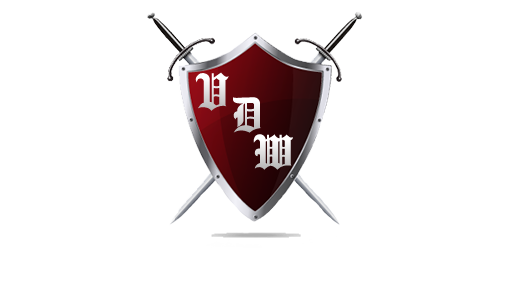
SAVED BY THE BELL? NOT REALLY. NEW SEXUAL HARASSMENT POLICY MUST STILL BE IN PLACE BY OCTOBER 9, 2018
WHAT YOU NEED TO KNOW TO COMPLY WITH THE FINAL CHANGES TO NEW YORK STATE’S SEXUAL HARASSMENT TRAINING LAWS
Ok, so October 9, 2018 came and went, and the Department of Labor hasn’t knocked down your door with notices that you are non-compliant with New York’s State’s new sexual harassment laws. Time to breath easy, right? Wrong! While the State has continually vacillated in their typical fashion, finally extending the full training compliance deadline to October 9, 2019. However, effective October 9, 2018, all New York State employers were still required to adopt written sexual harassment prevention policies and institute annual anti-harassment training for employees. Confusing right? After issuing draft documents in August, the State has now issued final model policy and training documents, as well as FAQs and additional guidance on the new laws. More information can also be found on the State’s website.
The State has also issued an “Employer Toolkit” which provides an overview of the final policy and training materials and practical guidance for employers, which can be found here.
In order for your business to be fully compliant, it is required to adopt and distribute to employees written sexual harassment prevention policies that are compliant with the new law by October 9, 2018. To satisfy this obligation, employers may (1) adopt the State’s model sexual harassment policy and complaint form, or (2) implement their own policy and complaint form that equals or exceeds the minimum standards provided under the statute consistent with guidance issued by the State.
In response to a number of comments submitted on the draft policy and FAQs issued in August, the State made the following notable changes to the final documents issued on October 1:
- References in the model policy to the employer having a “zero-tolerance policy” for sexual harassment and retaliation have been removed, bringing the State’s guidance in line with the federal EEOC position disfavoring the use of the term.
- The State’s model policy:
- no longer requires that the investigation of a complaint be completed “within 30 days” as previously suggested, but rather states that the investigation should be completed “as soon as possible”;
- now makes clear that the investigation process “may vary from case to case”;
- indicates that investigation-related documents should be kept in a “confidential location”; and
- notes that written documentation of the investigation should include “[t]he basis for the decision” regarding the resolution of the complaint, as opposed to simply a statement of any corrective actions that will be taken.
The final changes also state that if an employer has already established investigative procedures that are similar to those provided in the State model (in that they provide for a timely and confidential investigation of complaints in a matter that ensures due process for all parties), the employer need not expressly adopt the investigative procedure set forth in the State model. That said, employers must nevertheless outline their investigative procedures in their policy document.
With regard to distribution of the policy, the FAQs state that a signed acknowledgment of receipt is not required, but that employers are “encouraged” to obtain one from employees. Employers must provide employees with a copy of the policy in writing or electronically, and if made available electronically, employees must be able to print a copy for their records.
We at The Van De Water Law Firm, P.C. are ready to help you navigate these murky waters to make certain your business stands in full compliance with the ever-changing sexual harassment training policy and training requirements. Call us for a free consultation on this, and any other legal issue affecting your business.

WHAT YOU NEED TO KNOW TO COMPLY WITH THE FINAL CHANGES TO NEW YORK STATE’S SEXUAL HARASSMENT TRAINING LAWS
Ok, so October 9, 2018 came and went, and the Department of Labor hasn’t knocked down your door with notices that you are non-compliant with New York’s State’s new sexual harassment laws. Time to breath easy, right? Wrong! While the State has continually vacillated in their typical fashion, finally extending the full training compliance deadline to October 9, 2019. However, effective October 9, 2018, all New York State employers were still required to adopt written sexual harassment prevention policies and institute annual anti-harassment training for employees. Confusing right? After issuing draft documents in August, the State has now issued final model policy and training documents, as well as FAQs and additional guidance on the new laws. More information can also be found on the State’s website here: https://www.ny.gov/programs/combating-sexual-harassment-workplace
The State has also issued an “Employer Toolkit” which provides an overview of the final policy and training materials and practical guidance for employers, which can be found here: https://www.ny.gov/combating-sexual-harassment-workplace/employers
In order for your business to be fully compliant, it is required to adopt and distribute to employees written sexual harassment prevention policies that are compliant with the new law by October 9, 2018. To satisfy this obligation, employers may (1) adopt the State’s model sexual harassment policy and complaint form, or (2) implement their own policy and complaint form that equals or exceeds the minimum standards provided under the statute consistent with guidance issued by the State.
In response to a number of comments submitted on the draft policy and FAQs issued in August, the State made the following notable changes to the final documents issued on October 1:
- References in the model policy to the employer having a “zero-tolerance policy” for sexual harassment and retaliation have been removed, bringing the State’s guidance in line with the federal EEOC position disfavoring the use of the term.
- The State’s model policy:
- no longer requires that the investigation of a complaint be completed “within 30 days” as previously suggested, but rather states that the investigation should be completed “as soon as possible”;
- now makes clear that the investigation process “may vary from case to case”;
- indicates that investigation-related documents should be kept in a “confidential location”; and
- notes that written documentation of the investigation should include “[t]he basis for the decision” regarding the resolution of the complaint, as opposed to simply a statement of any corrective actions that will be taken.
The final changes also state that if an employer has already established investigative procedures that are similar to those provided in the State model (in that they provide for a timely and confidential investigation of complaints in a matter that ensures due process for all parties), the employer need not expressly adopt the investigative procedure set forth in the State model. That said, employers must nevertheless outline their investigative procedures in their policy document.
With regard to distribution of the policy, the FAQs state that a signed acknowledgment of receipt is not required, but that employers are “encouraged” to obtain one from employees. Employers must provide employees with a copy of the policy in writing or electronically, and if made available electronically, employees must be able to print a copy for their records.
We at The Van De Water Law Firm, P.C. are ready to help you navigate these murky waters to make certain your business stands in full compliance with the ever-changing sexual harassment training policy and training requirements. Call us for a free consultation on this, and any other legal issue affecting your business.

Recent Comments